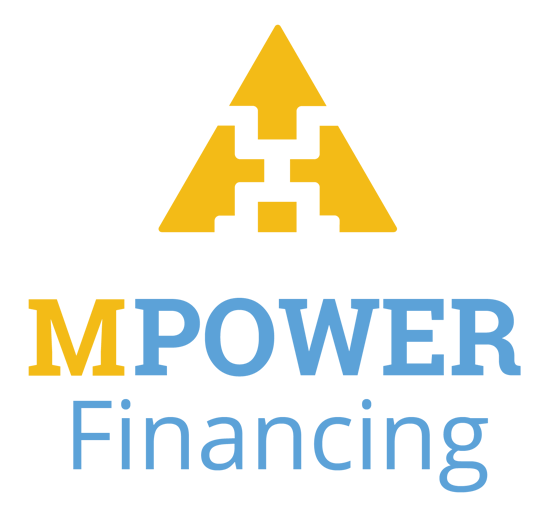4 Student Loans for Bad Credit or No Credit of February 2026
If you have bad or no credit, federal student loans are a smart first option, because most don’t require a credit check to qualify. Federal student loans also offer flexible repayment options, fixed interest rates and forgiveness programs.
However, federal loans do have borrowing limits. If there’s still a cost gap to fill, consider private student loans from a bank, credit union or online lender that doesn't have credit score requirements or accepts co-signers.
Here are our picks for student loans for bad credit or no credit. Continue reading for tips on how to apply for student loans when you have bad credit.
Why trust NerdWallet
- 19 student loans lenders reviewed and rated by our team of experts.
- 10+ years of combined experience covering higher education and consumer lending.
- Objective, comprehensive star-rating system assessing 40 categories and more than 50 data points across student loan origination and student loan refinance.
- Governed by NerdWallet's strict guidelines for editorial integrity.
Why trust NerdWallet
- 19 student loans lenders reviewed and rated by our team of experts.
- 10+ years of combined experience covering higher education and consumer lending.
- Objective, comprehensive star-rating system assessing 40 categories and more than 50 data points across student loan origination and student loan refinance.
- Governed by NerdWallet's strict guidelines for editorial integrity.
Student Loans for Bad Credit or No Credit
Lender | NerdWallet editorial rating | Min. credit score | Fixed APR | Variable APR | Learn more |
|---|---|---|---|---|---|
Best for customer support and wide availability 5.0 /5 | Low-Mid 600s | 13.01-15.19% | 12.42-14.57% | Check Rate on Ascent's website | |
5.0 /5 | None | 6.39-7.94% | N/A | Read Review on NerdWallet | |
4.5 /5 | None | 7.95-12.49% | N/A | Read Review on NerdWallet | |
4.0 /5 | None | 12.99-15.99% | N/A | Read Review on NerdWallet |
Our pick for
Private loans for bad or no credit
- Typical credit score of approved borrowers: Did not disclose.
- Minimum income: $30,000 per year for credit-based loan. No minimum for future-income based loan.
- Loan amounts: $2,001 to $200,000 per year with an aggregate loan limit of $200,000 for credit-based loan. $2,001 to $20,000 per year for future-income based loan.
- Among the best for payment flexibility.
- Grace period of 9 months is longer than most lenders.
- International students are not eligible.
- Freshmen, sophomores and those enrolled less than half-time are not eligible for the Outcomes-based loan.
Ascent offers an outcomes-based option that doesn't require a co-signer and evaluates your application based on factors like earning potential, major and attendance in school.
- Minimum income: No minimum, but borrowers must demonstrate they can pay $20 per month toward their loan.
- Loan amounts: $3,001 up to $20,000.
- You don't need a co-signer or credit to get a loan.
- You can see if you’ll qualify and what rate you’ll get without a hard credit check.
- Loans aren't available in 10 states.
- Payment required while in school.
- MPOWER considers future income potential but does not factor in credit scores.
- Loan amounts: Minimum $2,001. Maximum loan is $100,000, limited to $50,000 per academic period.
- Offers a hard-to-find option: non-co-signed student loans for international and DACA students.
- Borrowers are assigned a dedicated student loan advisor.
- Borrowers can request forbearance of up to 24 months, which is longer than many lenders offer.
- Payment required while in school.
- Offers only one repayment term: 10 years.
Our pick for
Best student loan for bad credit
- No credit check or minimum income is needed to borrow.
- Loan amounts for undergraduates: $5,500 year one, $6,500 year two, $7,500 year three and thereafter, up to a total of $31,000
- Independent students and graduate students have higher loan limits.
- Undergraduate interest rate fixed at 3.73%, while grad students get higher 5.28% rate
- More flexible repayment options for struggling borrowers than other lenders.
- Subsidized loans do not collect interest while in school or during deferment.
- Lower interest rates than many private lenders.
- You pay an origination fee.
Federal direct loans offer generous repayment flexibility and among the lowest fixed-interest rates you’ll find.
Student loans for bad credit: how to apply
Even with bad or no credit, you can still apply for student loans. Here are the steps to take:
Start with federal student loans. Fill out the Free Application for Federal Student Aid, known as the FAFSA, to apply for federal student loans as well as free aid such as grants, scholarships and work-study. Federal student loans don't have credit requirements, and they come with income-driven repayment plans and forgiveness programs.
Supplement with co-signed private loans. If federal loans don't cover your expenses and you need a private student loan, applying with a co-signer with good credit and steady income will help you qualify and get a good rate. Your co-signer will be responsible for your debt if you can’t repay it.
If you can’t find a co-signer, consider loans you can get independently. Some private lenders that offer student loans don't factor in credit scores when determining eligibility. Instead, they consider factors like future income potential, major and GPA.
Compare student loan features. When shopping for a private loan, compare offers to get the lowest interest rate you qualify for. Find out if there are origination, prepayment or late fees, and note whether the lender will postpone payments in case you have difficulty affording them. Finally, determine how easily you can reach the lender by phone, email or live chat if you encounter a billing or customer service issue.
Opt for a fixed interest rate. Given the choice, a fixed interest rate is a safer bet than a variable interest rate since it won’t increase or change over time.
Keep an eye on the bottom line. Use a student loan calculator to see your monthly payments and total interest costs.
How to a get private student loan for bad credit
If you have poor credit, you’ll likely need a co-signer to qualify for a private student loan. A few lenders offer loans without credit or co-signer requirements, but their interest rates may be higher.
Most private lenders require borrowers to have a credit score in the mid-600s or higher. If you don’t have credit or your credit history is thin, you have two options for private loans:
A private loan from one of the few lenders that don’t have credit or co-signer requirements.
A private loan with a co-signer who has good credit.
» MORE: Best private student loans without a co-signer
Can I refinance student loans with bad credit?
Once you’re out of school and have built a credit profile, you may be able to refinance private student loans to a lower interest rate. You’ll generally need solid income, good credit and a history of on-time debt payments.
Federal student loans can also be refinanced. However, this is a risky move, because refinancing federal loans makes you permanently ineligible for federal protections like loan forgiveness programs and monthly payments based on your income.
Student loan options for parents with bad credit
Parents with bad credit have fewer options for parent loans. You'll likely need a guarantor or a co-signer to qualify.
Federal PLUS loans require parent borrowers to not have adverse credit history — a negative mark on your credit history such as charged-off payments, default or bankruptcy.
If your PLUS loan application is denied you can try to get an endorser (similar to a co-signer) who can qualify for a parent PLUS loan. Or you can appeal the decision with the Department of Education by providing documentation of extenuating circumstances.
Your next best option is to look for private student loans for parents that allow you to have a co-signer.
Student loan alternatives
If you don’t qualify for student loans due to poor credit, there are alternatives to college to consider. Apprenticeships, trade school, community college and bootcamps offer educational training that typically costs less than a four-year degree.
You may also be able to find jobs that will pay for college. Starbucks, for instance, pays 100% of employee tuition for a first-time bachelor’s degree through Arizona State University’s online program.
Last updated on January 12, 2026
Frequently asked questions
Where can I get a student loan with bad credit?
Start with federal undergraduate student loans, which don't require a specific credit score. For private student loans, consider lenders like Ascent and Funding U.
Can you get a student loan with poor credit?
It's possible to get a student loan when you have poor credit or no credit. Most federal student loans don’t require a credit check or established credit history to qualify, making them your best option if you have poor or no credit. Most private student loans require good credit or a co-signer with good credit.
What credit score do you need for a student loan?
Federal student loans don't have a minimum credit score. If you need a private student loan after exhausting federal aid, you’ll typically need a FICO score in the mid-600s or higher to qualify.
Are there student loans that don't require a credit check?
There’s no credit check for federal undergraduate student loans. While some private lenders don’t require a specific credit score, they may still check for negative credit history like loan defaults.
How we chose the best student loans
Our team of student loan experts follows an objective and robust methodology to rate lenders and pick the best.
19
Lenders reviewed
19
Lenders reviewed
We reviewed 19 banks, credit unions, and online lenders — including the top 10 by market share and search volume — plus lenders serving niche and nontraditional borrowers.
40
Features assessed
40
Features assessed
Each lender is evaluated across five weighted categories, covering dozens of features related to affordability, eligibility, consumer experience, flexibility, and application process.
50+
Data points analyzed
50+
Data points analyzed
Our team tracks and reassesses more than 50 data points annually, including APR ranges, fees, credit requirements, and borrower tools, ensuring up to date, accurate comparisons.
Star rating categories
We evaluate more categories than competitors and carefully weigh how each factor impacts your experience.
5.0
Overall score
NerdWallet reviewed 19 banks, credit unions and online lenders offering student loans and student loan refinancing. We included the top 10 lenders by market share and the top 10 lenders by online search volume, as well as lenders that serve specialty or nontraditional markets. Some lenders are NerdWallet partners, but this did not influence our selection of the winner.
We consider 40 features and more than 50 data points for each financial institution. Depending on the category, these include the availability of biweekly payments through autopay, minimum credit score and income requirement disclosures, availability to a wide range of borrowers in all states, extended grace periods and in-house customer service.
The stars represent ratings from poor (one star) to excellent (five stars). Ratings are rounded to the nearest half-star. Read more about our ratings methodologies for student loans and our editorial guidelines.
NerdWallet's Student Loans for Bad Credit or No Credit of February 2026
- Ascent Non-Cosigned Student Loan: Best for Private loans for bad or no credit, Fixed APR: 13.01-15.19%
- Federal Subsidized/Unsubsidized Loan: Best for Best student loan for bad credit, Fixed APR: 6.39-7.94%
- Funding U Private Student Loan: Best for Private loans for bad or no credit, Fixed APR: 7.95-12.49%
- MPOWER Private Student Loan: Best for Private loans for bad or no credit, Fixed APR: 12.99-15.99%


